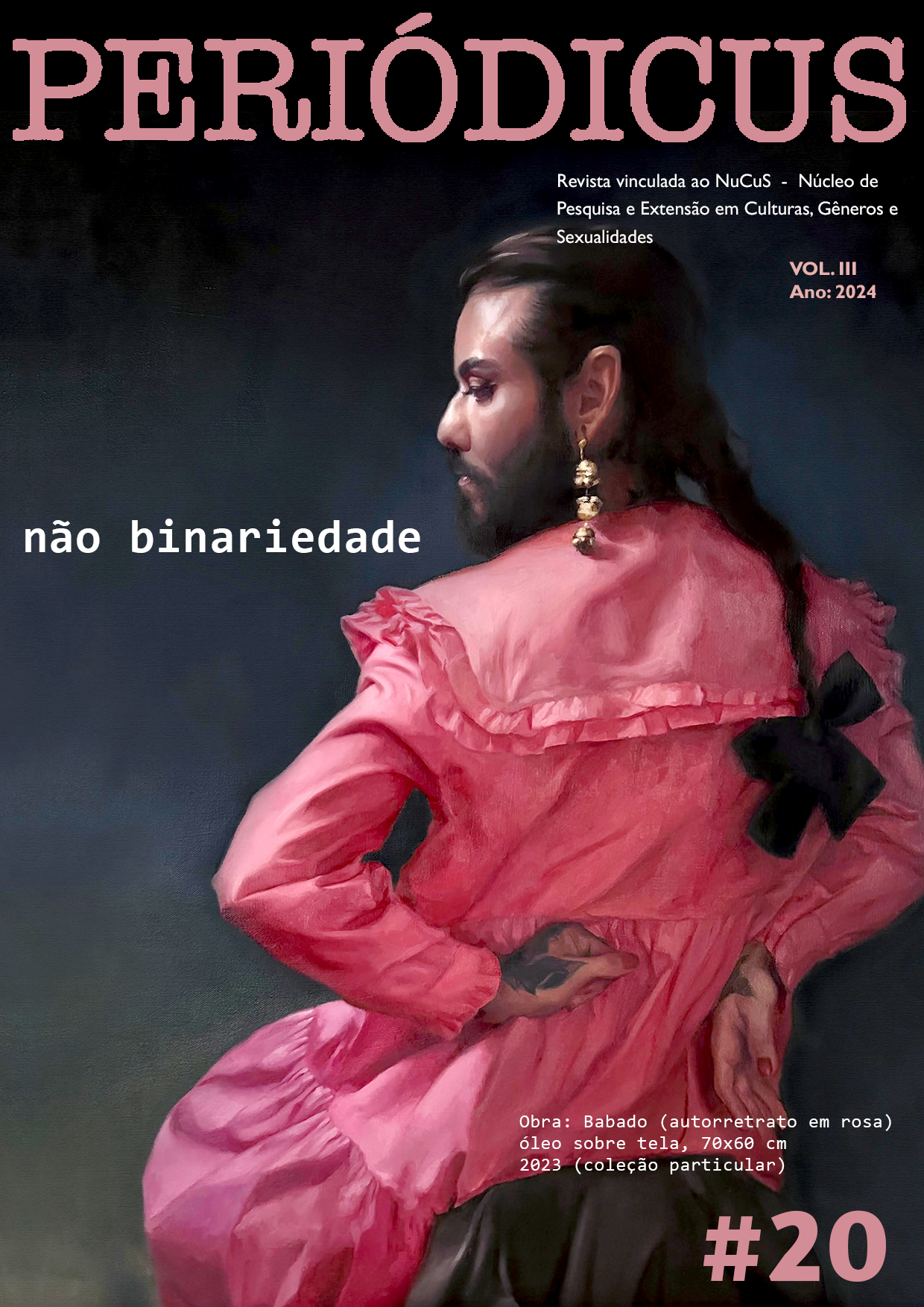An analysis on the feelings of guilt, fear and shame in A palavra que resta, by Stênio Gardel
DOI:
https://doi.org/10.9771/peri.v3i20.60145Abstract
This article offers a critical analysis of the character Raimundo, protagonist of the novel A palavra que resta (2021), by the Brazilian writer Stênio Gardel, focusing on the feelings of guilt, fear and shame concerning sexuality. By using a theoretical framework and a transdisciplinary analytical approach which relies on literary studies, psychoanalysis and social sciences, this work examines how these feelings, enhanced by Christian values, operate as mechanisms of social control, affecting the protagonist's journey. We highlight how the family plays a fundamental role in transmitting Christian guilt to Raimundo. However, in addition to the main themes discussed in this study, we point out the protagonist’s liberation process: from middle age onwards, Raimundo elaborates his traumas and accepts his sexuality, overcoming the feelings that hindered him throughout his life.
Downloads
Downloads
Published
How to Cite
Issue
Section
License
Copyright (c) 2024 Raul Leme Medeiros, João Pedro Wizniewsky Amaral

This work is licensed under a Creative Commons Attribution-NonCommercial 4.0 International License.
Authors who publish in this journal agree to the following terms:
Authors retain copyright and grant the journal the right of first publication, with the work simultaneously licensed under a Creative Commons Attribution Noncommercial License that allows the work to be shared with acknowledgment of authorship and initial publication in this journal, but prohibits commercial use.
Authors are authorized to enter into separate additional contracts for non-exclusive distribution of the version of the work published in this journal (e.g., publishing in an institutional repository or as a book chapter), with acknowledgment of authorship and initial publication in this journal.
Authors are permitted and encouraged to publish and distribute their work online (e.g., in institutional repositories or on their personal website) at any point before or during the editorial process, as this can generate productive changes and increase the impact and citation of the published work (see The Effect of Open Access).








